Common Helpers in a Garden
- Pollinators
- Earthworms
- Beneficial Insects
- Spiders
- Beneficial nematodes
- Chickens
- Ducks
- Dogs
- Cats
- Aerial predators
- Frogs and Toads
- Lizards
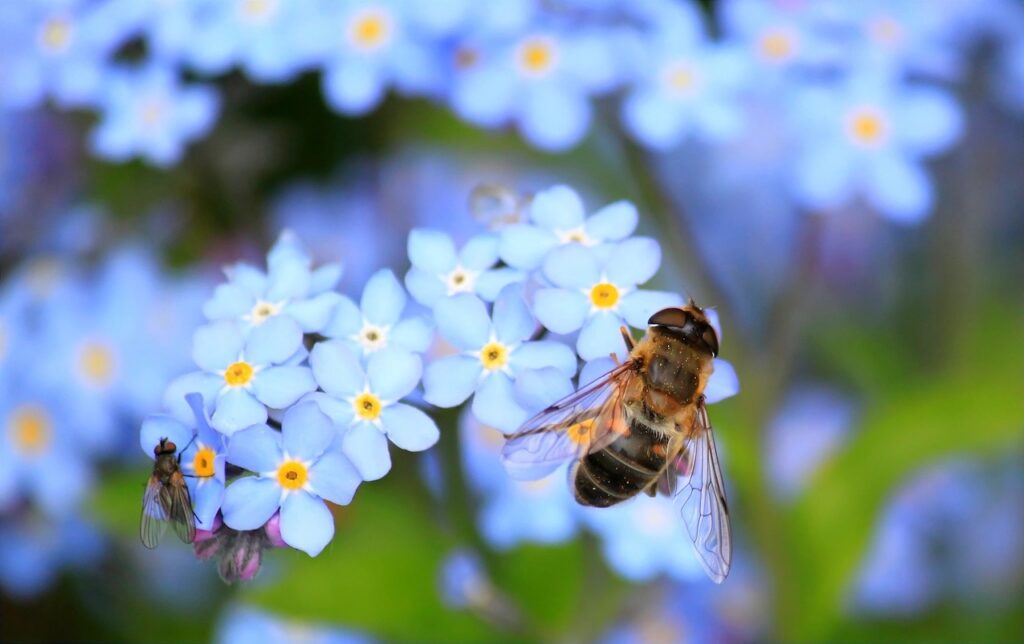
What are garden helpers?
Garden helpers are beneficial insects, bugs, and creatures that protect your plants and help your garden to thrive. Pollinators and earthworms are some of the most common garden helpers known.
Pollinators
Butterflies
The adults feed on plant nectar and in that process, get pollen on their bodies and legs, which gets carried to other plants. However, their larvae, caterpillars, can cause major damage to leaves of plants.
Bees
The most famous of pollinators, bees, pollinate 80% of all flowering plants on earth. Like butterflies, they eat nectar in the flowers and get pollen all over their bodies and legs. Then, fly to other flowers spreading the pollen.
Bees use their “honey stomachs” to store the nectar they eat and take it back to the hives to produce honey. Honey can be used as a natural sweetener for desserts, and anything else desired.
Earthworms
Earthworms are a great garden helper because they tunnel through soil creating aeration and improves water infiltration. Earthworm excrement, or castings, also improve the soil by combining minerals and organic matter.
Another way earthworms are helpers; they relieve soil compaction and allow plants to gain access to nutrients.
Beneficial insects
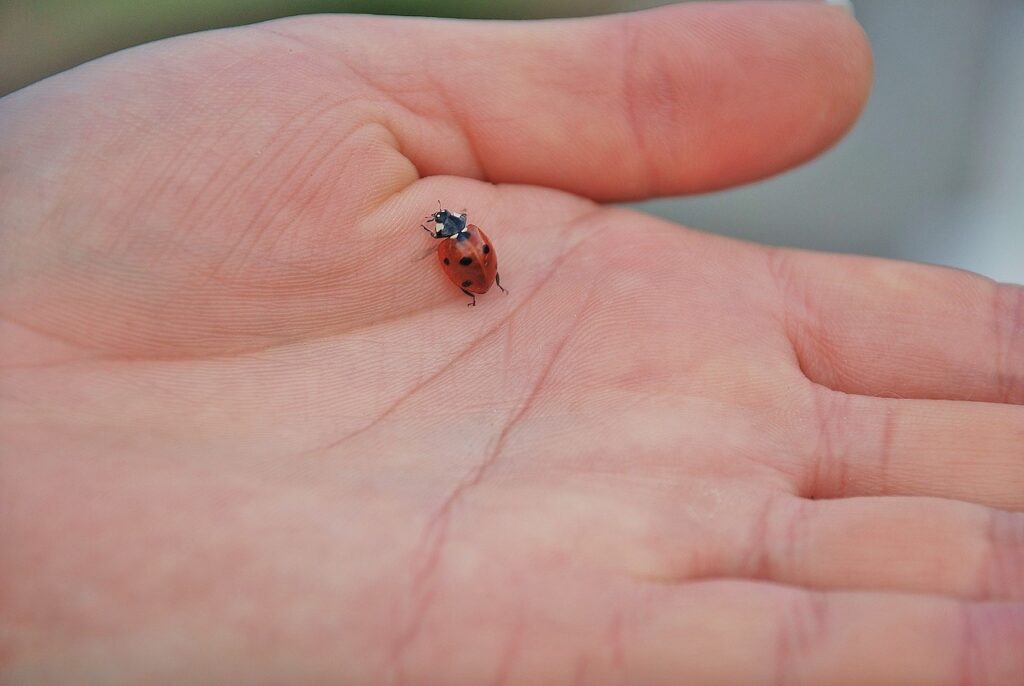
Ladybugs
Ladybugs are predators that love eating aphids, mites, mealybugs, and leafhoppers. They also eat insect eggs, and ants. These insects are great garden helpers and beautiful to look at.
Green lacewings
Green lacewings are also predators in the garden space. They feed on aphids and other soft bodied insects. This critter was nicknamed the “aphid lion” because they can eat so many aphids. Caterpillars, leafhoppers, mealybugs, and whiteflies may also be devoured by these lacewings.
Dragonflies
Dragonflies are a great garden helper due to their predation on the mosquito population. They also eat other soft bodied insects, and love to live near water.
Praying mantis
Praying mantis eat moths, mosquitoes, roaches, flies, aphids, and pretty much any bug that crosses its path. These insects are hunters and can even tackle small rodents.
Stink bugs
Despite their name, stink bugs are not harmful, and prey on caterpillars, beetles, aphids, and other soft-bodied insects. They use their piercing and sucking mouthparts to disembowel their prey.
Stink bugs get their name from the repellant fluid they secrete when they are threatened or squashed.
Parasitic Wasps
Parasitic wasps lay eggs in the larvae of caterpillars, aphids, tobacco hornworms, tomato hornworms and more. These beneficial insects look intimidating but are not harmful to humans if they are left alone.
Ground beetles
Ground beetles are active night crawlers that prey on mites, snails, slugs, caterpillars, earwigs, cutworms, vine borers, aphids, and many more. These beetles are also responsible for missing topsoil, which aids in the dispersal of nutrients to all plants.
Spiders
Spiders are eight legged beasts that prey on all kinds of bugs. They can bite humans, but primarily hunt at night, therefore they should leave you alone. There are two kinds of spiders that hunt in garden spaces.
Ground spiders, like jumping spiders and wolf spiders, catch anything from aphids, beetles, and caterpillars to grasshoppers and crickets.
Aerial spiders, like orb weavers, catch flying insects in their webs. While spiders get rid of annoying insects, they do not know the difference between bad and good. Spiders will prey on all bugs, even the beneficial ones.
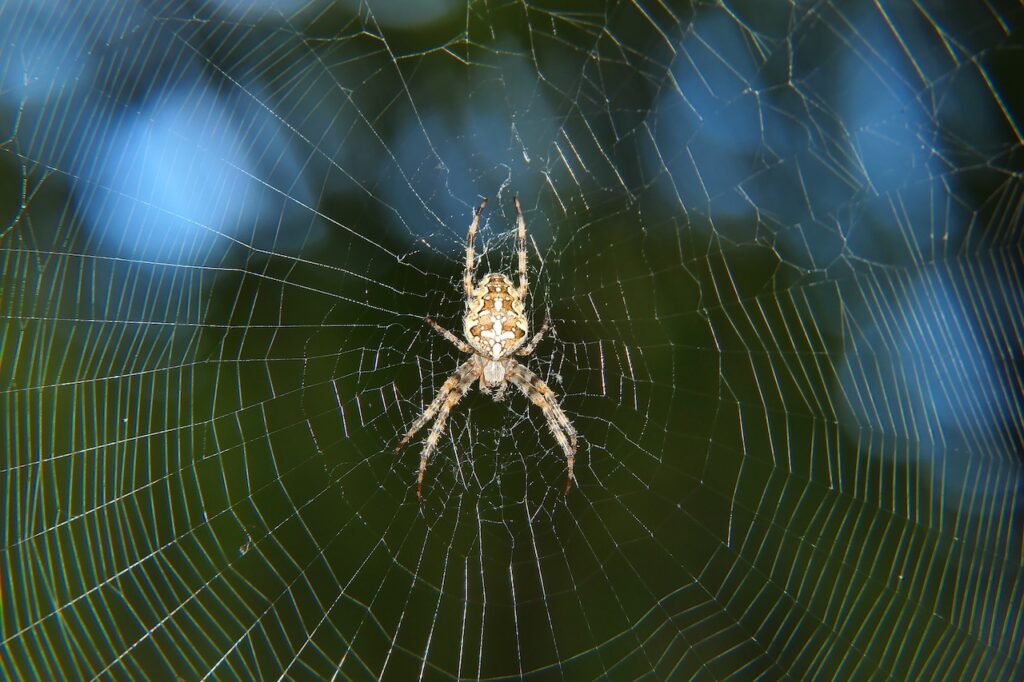
Beneficial Nematodes
Beneficial nematodes are microscopic roundworms that naturally live in soil. They feed on soil dwelling insects by eating them from the inside out. Like earthworm castings, beneficial nematodes can be mixed into the soil to better influence the nutrient densities.
Chickens
Chickens are very beneficial in a garden space for multiple reasons. They scratch the earth to get bugs in the soil. This scratching helps mix the soil. Chickens also have very nutrient dense excrement, that helps compost the soil. In addition, these birds help digest tougher vegetables that are unwanted by humans.
But chickens, like beneficial insects, prey on all kinds of bugs in the garden space.
Ducks
Much like chickens, ducks are excellent predators of insects and provide fertility from their excrement. Ducks are also able to compost, bedding and other weeds in the garden space.
Dogs
Having dogs are a great addition to garden spaces, as long as they do not dig up your plants. These canines catch mice, large rodents, and can deter other larger pests from coming into your garden.
If you are wondering if you should have dogs on your homestead, or in your garden, check out our article here.
Cats
Cats are garden helpers because they deter mice and other rodents from running off with your produce. Beware that cats do like to use dirt as their litterbox. Cat feces are good for growing plants.
Aerial Predators
Birds, owls, and bats are aerial predators that kill mosquitos, rodents, and most bugs. However, birds may also eat your ripe produce. Use bird netting to protect your produce and still allow these birds to get their fair share of bugs.
Frogs and Toads
Frogs live in and near water and are great at feasting on bugs in and out of the water. Toads, like frogs, like moist environments and are also good at catching jumping insects like crickets and grasshoppers.
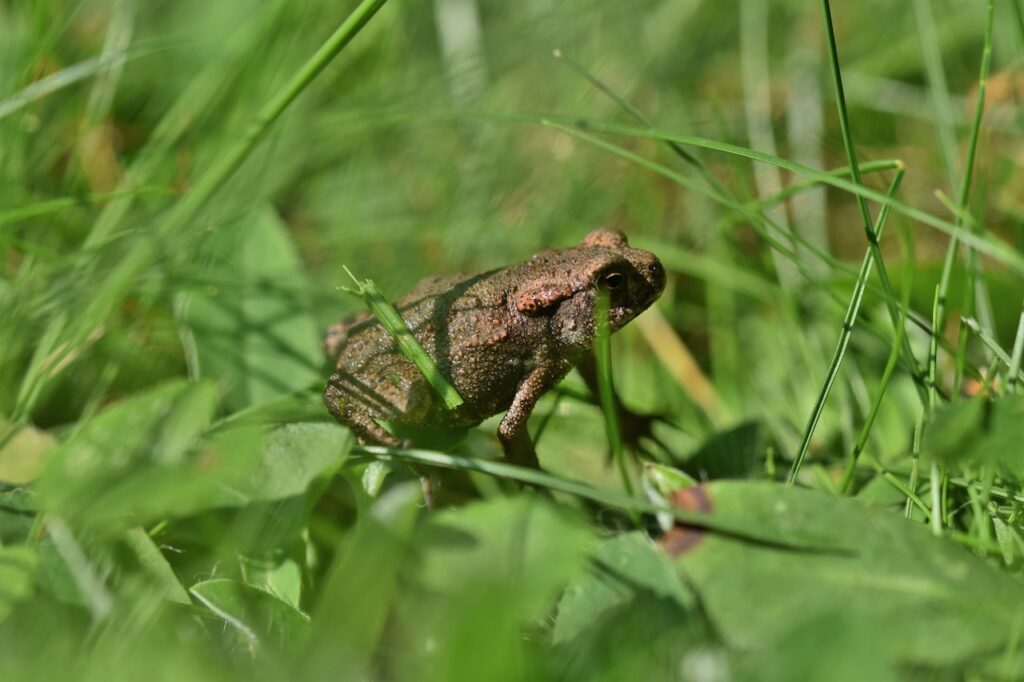
Lizards
Lizards are also garden helpers. These reptiles are good at blending in with the garden leaves, and feast on insects during the day. Lizards come in many shapes and sizes, and all will eat bugs.
How to Attract Garden Helpers
Common helpers in the garden are attracted by many things, but most of all diversity in landscape. Early blooming plants like alyssum, or carrots that have gone to seed, provide blooms for pollinating, which in turn attracts beneficial insects.
Compound blossoms, or flowers that have multiple sources of pollen and nectar, are very attractive to garden helpers. These flowers include yarrow, goldenrod, Queen Anne’s lace, lavender, mint, sage, dill, fennel, lemon balm, and many more.
In addition, all living things need a source of water. Set up a watering station that is safe for insects and bees a like. These are shallow dishes with rocks or marbles in the bottom to prevent these insects from drowning.
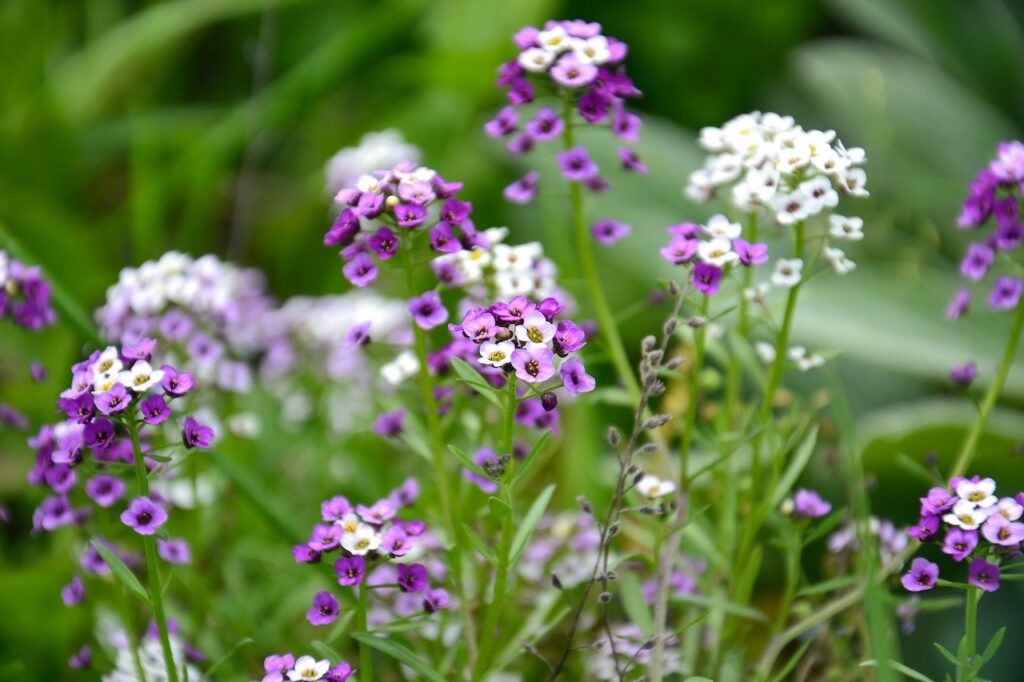
Pesticides and Garden Helpers
Pesticides are known to kill all kinds of bugs and insects, even the good ones. Common helpers in the garden are considered a natural form of pesticide. By introducing pesticides of any kind, even ones like neem oil, or insecticidal soap, can cause destruction to the good insects.
For more information about bees and neem oil, read this article by Bee Culture. https://www.beeculture.com/neem-oil-harms-bees/
Recent Posts
In general, to harvest your own seeds, you must choose mature, healthy plants, allow seeds to dry out, and remove the seeds when they are completely dry. However, this process will look different for...
A guide on how to store and organize seeds for your garden. Vegetables, flowers, herbs, or anything you are wanting to grow. How to Store Your Seeds Proper storage of garden seeds is essential...
